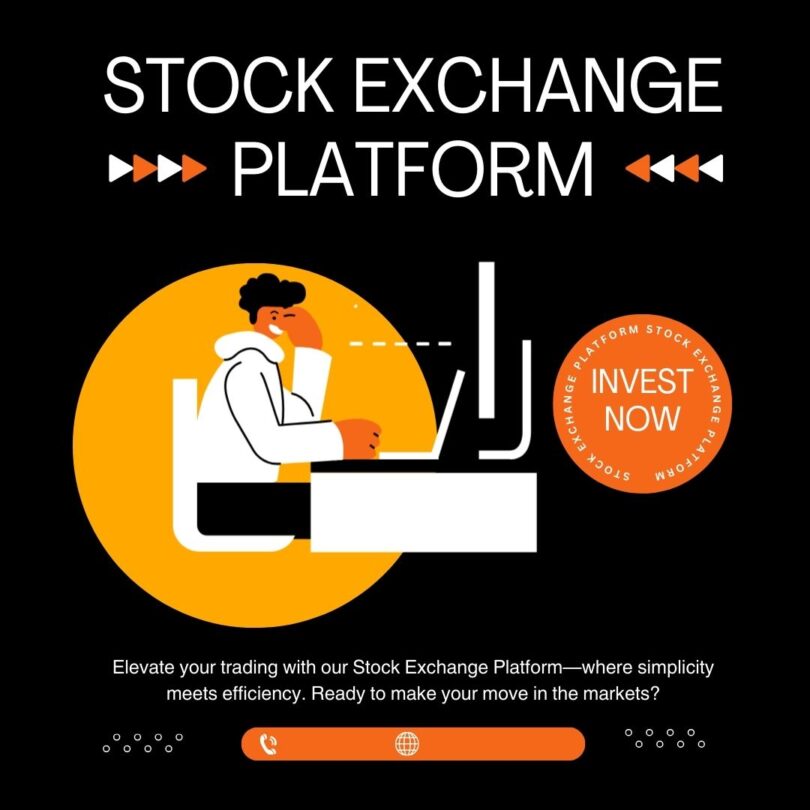What Is the Stock Exchange?
A stock exchange is a marketplace where stocks, bonds, and other securities are bought and sold. It facilitates transactions between investors, providing a regulated and transparent platform for trading. Companies list their shares on the stock exchange to raise capital, and investors buy these shares to gain ownership and potential returns. Well-known stock exchanges include the New York Stock Exchange (NYSE) and the Nasdaq. By connecting buyers and sellers, the stock exchange plays a vital role in the economy, promoting investment and growth.
The UK Stock Exchange, officially known as the London Stock Exchange (LSE), is one of the largest and oldest stock exchanges in the world. Established in 1801, it is based in London and serves as a hub for global financial activity. The LSE facilitates the trading of stocks, bonds, and other securities, connecting investors and companies.
UK Stock Exchange
Key Features of the London Stock Exchange
- FTSE Indices: The LSE is home to the FTSE 100, a stock market index representing the 100 largest companies by market capitalization listed on the exchange. Other indices, such as the FTSE 250 and FTSE All-Share, provide further insight into market performance.
- Main Market and AIM:
- Main Market: This is for established companies with a proven track record.
- AIM (Alternative Investment Market): A sub-market designed for smaller, growing companies seeking investment opportunities.
- Global Reach: The LSE attracts companies and investors worldwide, making it an international financial center.
How It Works
The LSE operates as an electronic trading platform, ensuring fast, secure, and efficient transactions. Companies list their shares through an Initial Public Offering (IPO), enabling them to raise capital from investors. Investors can then trade these shares, benefiting from price changes and dividends.
The London Stock Exchange plays a critical role in the UK’s economy, providing a robust platform for businesses to grow and investors to earn returns.
nvesting in the stock exchange can be a rewarding way to grow your wealth. However, it requires knowledge, strategy, and patience. This guide will walk you through the essential steps to get started.The stock exchange is a marketplace where shares of publicly listed companies are traded. It connects buyers and sellers, allowing them to exchange shares at a fair market price.
Steps to Start Investing in the Stock Exchange
Set Clear Financial Goals
Before investing, determine what you want to achieve. Whether it’s saving for retirement, buying a home, or building wealth, clear goals will guide your investment strategy.
Understand Your Risk Tolerance
Assess how much risk you can handle. Younger investors may take on more risks, while older individuals might prefer safer options.
Research the Market
Familiarize yourself with market trends, economic indicators, and stock performance. Staying informed helps you make better decisions.
Open a Brokerage Account
Choose a reputable brokerage platform to buy and sell stocks. Compare fees, features, and customer service to find the best fit.
Diversify Your Portfolio
Invest in different sectors and asset classes. Diversification reduces risk and increases the potential for steady returns.
Start with Index Funds
Index funds track market performance and offer a lower-risk way to begin investing. They’re ideal for beginners and provide steady growth over time.
Monitor Your Investments
Regularly review your portfolio. Stay updated on market conditions and adjust your investments as needed.
Common Mistakes to Avoid
Emotional Investing
Avoid making decisions based on fear or greed. Stick to your plan and avoid impulsive moves
Ignoring Fees
Be aware of hidden charges like brokerage fees or management costs. These can eat into your returns
Overlooking Research
Investing without understanding a company’s fundamentals can lead to losses. Always analyze before buying stocks.
Benefits of Stock Exchange Investments
- Wealth Creation: Long-term investments can generate significant returns.
- Liquidity: Stocks can be bought or sold quickly, ensuring easy access to your funds.
- Ownership: Owning shares gives you a stake in a company’s success.
Final Thoughts
Investing in the stock exchange requires dedication and strategic planning. By educating yourself, setting clear goals, and avoiding common pitfalls, you can maximize your chances of success.
Take the first step today and secure your financial future. Happy investing!
World TOP 10 Stock Exchange






